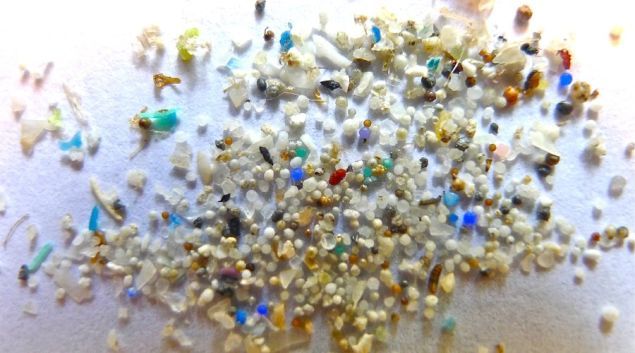Ending single-use plastics is a shared responsibility
Plastic has transformed our daily lives in so many ways – from the cars we drive, the computers we use, to the mattresses we lay on. But while plastic was once hailed as revolutionary, today it is a major issue, largely because much is designed to be used only once. These single-use plastics are having a negative effect on the environment, especially within our oceans.
Up to 12 million tonnes of plastic enters our oceans each year and if this rate is maintained, by 2050 there will likely be more plastic in the ocean than fish – not a pleasant thought. Consumers, government, businesses and the wider community all have a shared responsibility to work together to find effective solutions to cut down on single-use plastics.
Big brands take a stand
Australia has made great progress in this area over the past 12 months – especially within the consumer goods industry. In February 2018, 11 leading brands including Unilever, Mars, Evian and the Coca-Cola Company made a pledge to work towards 100 per cent reusable, recyclable or compostable packaging by 2025.
In July 2017, we also saw supermarket giants Coles and Woolworths agree to phase out single-use plastic bags in stores around Australia within the next 12 months (by July 2018) and replace them with reusable bags that customers will need to purchase.
This showed great leadership and paved the way for many other retailers to do the same – including Harris Farm Markets and IGA. When large businesses take a stance on environmental issues, it causes a domino effect for the wider industry.
Disposable coffee cups are a major contributor to waste and in London in February, coffee giant Starbucks introduced a three-month trial of the “latte levy” – a 5 pence charge on disposable coffee cups in an effort to reduce the overuse and waste of 2.5bn disposable cups every year. This is on top of the discount customers receive for bringing in reusable containers for their coffee.
A number of Australian coffee shops are also contributing to the cause by banning disposable coffee cups all together. Australians coffee drinkers are also getting on board as evidenced by the 400 per cent increase in sales in 2017 by KeepCup, an Australian reusable cup manufacturer.
Working together to reduce waste
When leading brands work together the sky is the limit. In January, for example, major retailers committed to a new nationwide labelling scheme to help consumers recycle their products more effectively. The aim of the Australasian Recycling Label (ARL) is to reduce the amount of waste going to landfill and major institutions that have pledged to use the scheme include Woolworths, Officeworks, Australia Post, Blackmores, Nestle, and Unilever.
Many major organisations also have a sustainability charter as part of their corporate social responsibility commitment. Telstra for example, has a number of waste initiatives including placing e-waste recycling hubs in workplaces, reducing packaging associated with products, and programs to reuse customer equipment. PWC Australia was the first professional services firm to become carbon neutral and also encourages behavioural change among staff through activities such as green weeks and offers on sustainable products and services.
Consumers favour brands that empower them
Banning plastic bags was once thought to be too difficult to implement but most of us are now in the routine of carrying reusable bags for our shopping. It’s about changing a mindset. As consumers, we are increasingly aware of our environmental footprint and we have higher expectations of the brands we deal with.
In particular, Millennials favour brands that empower them and fulfil their need to contribute positively to society. Research from Unilever shows that 81[1] per cent of people expect more from their purchase than the acquisition of products and services. And 71 per cent of people say they are willing to pay more for a socially and environmentally responsible product.
In fact, socially active brands are growing 30 per cent faster than other brands. So if tackling the war on waste is good for an organisation’s reputation, profit, brand, ability to attract talent – and also reduces its environmental footprint – then doesn’t it make good business sense?
A positive impact in the workplace
Australian workplaces generate over 12.5[2] million tonnes of waste each year. And nearly half (44 per cent) of this waste is sent to landfill. Organisations can take a stand by banning single-use plastics in the workplace. However, that change needs to start at the top otherwise employees feel their workplace is just ‘ticking a box’.
An initial first step could be putting together a business case for recycling that highlights the costs of waste management programs and where savings can be made.
Celebrating Global Recycling Day, Sunday, March 18
From plastic microbeads in beauty products, to the use of coffee pods that take 500 years to break down and the liberal use of plastic packaging for fresh produce, one thing is clear – while we have come a long way, we still have a very long way to go.
We need a greater commitment from organisations to set stretch targets to reduce single-use plastics, and for more companies to invest in innovation that seeks solutions for reusable, recyclable or compostable packaging.
Mark Global Recycling Day (March 18) on your calendar and commit to making a change to how you use single-use plastics in your organisation as part of your wider corporate social responsibility efforts. Today’s consumers understand the importance of working with the environment rather than against it, so Australian organisations need to get on board now with appropriate recycling initiatives. There’s no time to waste.
For more content like this, subscribe to our e-news
[1] https://www.sundaylunch.com.au/single-post/2017/03/16/Millennials-and-the-Purpose-Imperative-for-Brands
[2] http://businessrecycling.com.au/reGlobal Recycling Day on 18 March search/barriers.cfm
-
Subscribe to the latest industry news, insights and AWRE updates.
- Subscribe

